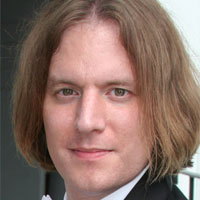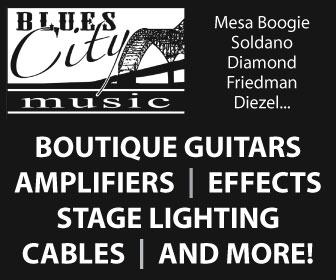Jules Shear
Sayin' Hello To The Folks
Jules Shear has earned the right to make the music he wants to make. On his latest CD, "Sayin' Hello To The Folks" (Valley Entertainment), the cult-favorite singer/songwriter covers twelve tracks from other notable lyricists, including tunes penned by Bob Dylan, Woody Guthrie, Brian Wilson and James Brown. The CD grew from Shear's extensive collection of CD compilations, and a desire to record some of his favorites on his own. While Shear is noted for his original and timeless style, he handles the eclectic selection of covers ably and creates a worthwhile album that complements his impressive body of work.
Recording since the 1970s, Shear has been a part of the Los Angeles and New York music communities, recording with groups such as the Funky Kings, with whom he released his first album in 1976, Jules and the Polar Bears, which recorded three albums from 1978-1980, and Reckless Sleepers in the late 1980s. He also established himself with his own multi-album solo career, beginning with the Todd Rundgren-produced "Watch Dog" in 1983, and continuing to the present day.
While his albums have earned him a devoted following, he has gained his greatest accolades from fellow musicians, many of whom have recorded his songs and earned hits in the process. Most notably, Cyndi Lauper scored a Top Five hit with his "All Through the Night" and the Bangles scored with "If She Knew What She Wants". A stellar group of musicians, including The Band and Roger McGuinn, even collaborated on an album of Shear's tracks, "Walking a Changing Line," in 1988.
Shear has had a role in shaping popular culture as well. He helped create the concept behind and hosted the thirteen premiere episodes of Mtv's "Unplugged" series, which would help redefine acoustic music in the 1990s and present some of the greatest musicians of that era in a different forum. While Shear's original format - there were several performers per show - changed by the time the music world's biggest names would unplug, the effect of that idea is still a part of mainstream music culture.
Chorus and Verse's conversation with Shear discusses how "Sayin' Hello To The Folks" came into being, as well as some of his history. While fans await his next release of original material, his latest CD is a wonderful example of Shear's pop sensibilities and show a music lover having fun in the studio and providing some insight into his own inspirations.
Recording an album of covers would seem out of character for an artist with such a stellar reputation as a songwriter. What was the genesis of "Sayin' Hello To The Folks," and it is fair to say that you've created your ultimate mix tape on this CD?
Well, I've got a lot of mix tapes that I've made. I'm not singing on them. I was going to record a new album with Stewart Lerman and standing at the corner of 16th Street and 8th Avenue. I asked him if we could do this album instead. Stewart's a good man. He was game.
How were the twelve songs on this album selected? In the liner notes, it says that you had 70 songs selected that were narrowed down. Are there any songs that you really wanted to do, but that you couldn't for one reason or another?
We had one really fun day where I played all seventy songs from my various mix CDs for Stewart. Then, I let him choose which songs he wanted to do. I never gave another thought to the other 58 songs.
Usually, when I've written the songs, we start out with twenty-five or thirty songs. I've learned that it's a waste to worry about the ones that you don't do.
As a songwriter yourself, what are the qualities of a song that appeal to you, and what is it about a particular song that makes it stick in your head or make you want to hear it over and over again?
That's the thing about songs, really; who knows why some songs make it and some don't? I don't know.
The press release for this CD stresses that this is not just a collection of covers, but new versions of these songs that were created by yourself and co-producer Stuart Lehrman. Did you have an idea of what you wanted to do with each of these songs before you started recording, or did the sound we hear on the album evolve in the studio?
It just happened as if they were my songs. They just weren't.
Are you someone who is always playing around with making your own compilations and mix tapes? Can you give us an idea of what your own music collection is like, and how often you add to it? Are there any recordings that you're looking for but haven't been able to locate yet?
I'm afraid I'm always making mix CDs, so that I can enjoy music and yet, in the car, never know what's coming. All of these songs on my album were selected from my mix CDs. Most of the time, I don't know what I'm looking for until I hear it. I just buy CDs that look interesting, the same way I always have.
Where and when was "Sayin' Hello To The Folks" recorded? What was the equipment set-up like that you used to put the album together, and are there any behind-the-scenes people who were particularly valuable in making the album happen?
Well, Stewart Lerman was amazingly helpful. It would not be this album without him. He was in charge of all equipment questions and that made everything easier. That said, Stewart is also a multi-instrumentalist, which helped tons making this album.
Is there a different feeling releasing this CD, as opposed to when it's your original material? Do you feel pressure when a new album comes out, and worry about the reaction of fans and critics? Or, at this point, have you released so much material that you're beyond such concerns?
You know, I do feel less pressure about this album and I suppose that's because I didn't write it. Or maybe it's because, what's the point? I think some people are going to like it.
Talk about your songwriting process a bit. Do you find yourself writing all the time, filling notebooks with ideas that you make into songs? Are you a structured songwriter that likes to work on a song from beginning to end until you come up with a finished product, or are you constantly working on a lot of ideas at once and just pick and choose which ones to use at any particular time?
I'm always working in a notebook that has lyrical notes for songs. It's very helpful when it comes time to make them into full-blown songs. I've got lots of them right now because I was "supposed" to record my own songs this time and I didn't. They'll keep.
Let's go back into your history a bit. Fans might not realize that you originated the "Unplugged" series on Mtv that eventually became a pop-culture phenomenon. Can you recount the story of how you first became involved with Mtv, and what your strongest memory is from the thirteen shows in which you participated?
My memories of "Unplugged" are a blur. I had this idea for a show where people who usually play with electricity just play without it. I thought it would be intimate. Robert Small was a guy who I knew who had directed a video for me. He got involved and actually came up with the title, "Unplugged". I became the host for the first season, then was shown the door. There were many reasons for this, but, really, who cares?
Do you have any future projects in the works, or additional recording plans that fans should be on the look out for? Would you like to do a follow-up similar to "Sayin' Hello To The Folks," or return to your original material?
I think I'll get around to recording the songs that I was going to record when this concept reared its head. That would probably be fun. Maybe someday it'd also be fun to "say hello to the folks again," but not right away.
[ Website: www.valley-entertainment.com ]

Matt Mrowicki founded Chorus and Verse in 2001. He is a rock star designer and technologist, Internet professional, content creator, and entrepreneur specializing in web development, IT consulting, branding, social media and online marketing. www.imprtech.com









